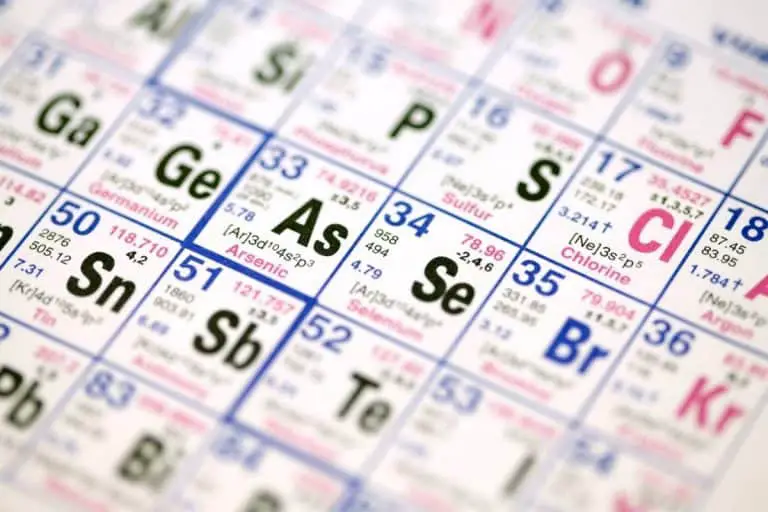Is Microbiology Hard? Here Are the Facts!
If you’ve just gotten into nursing school or any program that requires microbiology, you’re probably wondering what to expect with this course. After all, the level of your success in this course will be a strong indicator of how well you’ll perform in other courses in your program. So, you’re probably wondering whether microbiology is an easy or tough subject.
Microbiology is hard for many college students because it is very detail-oriented and requires memorization and rote learning. It focuses on microorganisms, which have unfamiliar names and are invisible to the eye. Plus, you have to learn about each microbe, mode of action, mode of nutrition, etc.
However, microbiology is a fascinating course if you know how to approach it. In the rest of this article, I’ll explain why microbiology is considered hard by many students. I’ll also show you the best way to study this course and excel in flying colors.

What Is Microbiology About?
In its simplest definition, microbiology is a field of life sciences that deals with the study of microorganisms. These microorganisms can either be unicellular (one cell), multicellular (many cells), or acellular (no cell).
Source: Britannica
As a microbiologist, you’ll work with microbes like viruses, bacteria, eukaryotes, protozoa, prions, algae, and fungi. No two microbes are the same, so you’ll have to learn about the unique characteristics of each of them.
Microbiology is just an umbrella word for branches of study, including:
- Mycology
- Virology
- Parasitology
- Immunology
- Bacteriology
Although microbes are often associated with diseases, they also have several benefits, including industrial fermentation, antibiotic production, industrial production of amino acids, etc.
This understanding helps microbiologists fight disease-causing pathogens and manipulate other microbes to generate useful products and medicine both at the molecular and genetic levels.
This YouTube video gives an excellent overview of the fundamentals of Microbiology:
Why Microbiology is a Hard Subject
Since microbiology focuses primarily on microorganisms, you can expect it to be different from other sciences. To be a good microbiologist, you must know these microbes and how they interact with their environment inside and out.
However, there are millions of microbes in existence, which means that there is a lot of information for you to process in this course.
Let’s take a closer look at what makes microbiology hard.
Intense Memorization/Rote Learning
Microbiology requires several hours of memorization of different terminologies and lessons. There are literally hundreds of scientific names and microorganisms to master and remember without making any typographical errors.
These microorganisms are classified in a taxonomic system based on their characteristics, appearance, reaction to biochemicals, mode of nutrition, etc. Many of the terms and names you’ll come across in microbiology are from Latin and Greek, making them more challenging to learn if you don’t speak these languages.
It’s even more frustrating when you have to memorize facts and information from several lectures and micro-courses. You will have to learn various testing methods and experiments to identify the bacteria, organism, etc., which can take hundreds of hours.
Pharmacological Concepts
Apart from microorganisms and tons of scientific names, you also have to learn the drugs that help to control, suppress growth, and destroy these microorganisms. These drugs, commonly referred to as antimicrobial drugs, include antifungals, antibiotics, and antivirals.
Different drugs are used to control various microbes. This means you have to understand the core pharmacological concepts, effects of each drug, differences and similarities between drugs, drug receptors, characteristics of each drug. You’ll also study drug metabolism, indication, mechanism of action, contraindications, routes of administration, etc.
Source: Medical Pharmacology and Therapeutics (Fifth Edition)
Pharmacology itself is one of the most challenging disciplines to learn. This is because you’re probably unfamiliar with the medical and technological terms and how the theoretical principles translate to real-life practice, so you’ll need to expend more effort to memorize them.
Now, memorizing a subject is one thing; remembering something boring is another.
Pharmacological concepts won’t only be new for you, they also aren’t the most exciting things to learn. This means that understanding them in depth might be challenging or require more time for you to grasp them fully.
Difficult To Visualize
Microbiology involves complex strains and microbial communities. It typically consists of a lot of laboratory work and microscope use. This is because microbes, in their natural state, are smaller than the human eye can see as they lack both color and contrast.
Added to this are hundreds of techniques and strain variations required to identify the microbes, their characteristics, cellular structures, metabolism, DNA sequences.
Also, you must be able to identify different species or varieties of microorganisms as they have similar classifications and groupings. This in itself is a difficult task without considering the rest of the demands of the course.
Growing Microbes in the Lab
As a microbiologist, you can’t escape working with and growing microorganisms in the laboratory. While it may sound interesting, it requires certain rules, environments, and lab conditions.
You also have to learn the different culture methods, nutrients, and growing temperatures, which require total focus and attention.
What’s more, working with these microbes can be difficult as they are tiny. It’s not as easy as performing experiments on mice or fish.
Also, while controlling and planning the bacteria’s activities, you have to pay extreme caution when handling these potentially dangerous microorganisms to avoid contamination.
Is Microbiology Major Harder Than Biology?
Microbiology is harder than biology because it deals more with microorganisms that are unfamiliar to you and can only be seen with the use of microscopes. Biology, however, is more concerned with living organisms as a whole, which means you can easily visualize and relate to them in everyday life.
The principles of biology are also easy to understand and don’t require much memorization. Also, the course itself is fun to learn, and there are several helpful resources you can use to navigate through.
That’s not to say that biology is the easiest course to major in. Biology is a comprehensive course covering everything from genetics, anatomy, physiology, and morphology to biomechanics and paleontology.
This diversity means that you need a lot of concentration to understand all the information. You have to dedicate time to study to pass the course. If you don’t, it will quickly pass you by.
Is Microbiology Harder Than Biochemistry?
Microbiology is slightly harder than biochemistry because of the amount of memorization required. Although biochemistry also requires memorization, it uses math and chemical formulas to derive concepts and solve problems.
Biochemistry deals with the chemical composition of substances and living organisms at the cellular and molecular levels. Like microbiology, it also involves a lot of research and laboratory work. However, in terms of the volume of work, it is easier compared to microbiology.
Source: Biochemical Society
Biochemistry may also be more fun and easier to learn than microbiology, which is more tedious.
Can You Take Microbiology Without Biology (And Should You)?
You can take microbiology without biology if you already understand microorganisms and how they grow, replicate, and mutate. Although it’s not a general prerequisite to study microbiology, taking biology will help you understand cellular functions and processes and their functions.
If you’re studying nursing, chances are you have a good knowledge of biology already. In this case, you can take microbiology without biology.
However, it’s a good idea to study biology first if you have no knowledge of the subject. Although microbiology only focuses on microorganisms, they overlap in areas such as immunology and genetics.
Also, a good understanding of protein cells will make things easier later when you’re studying the growth patterns of microorganisms.
So, should you take biology before microbiology, even if it’s not a prerequisite? Yes. Understanding things like cellular functions, bacterial metabolism, and virus macromolecules can make studying microbiology easier.
Best Ways To Study Microbiology
Although microbiology is challenging, there are strategies that you can use to study it and pass with high grades. In this section, I’ll help you with some approaches you can take to make microbiology less difficult.
Review the Syllabus and Course Requirements
You can prepare yourself mentally for what’s to come by reading and familiarizing yourself with the syllabus. While it may seem obvious, only a few students take the time to go through it.
The syllabus is like a foundation or framework to help you navigate through the course. It typically includes a vast amount of information such as the course objectives, prerequisites, outline, how to submit assignments, required textbooks, instructor contact address, etc.
Source: Stanford Academic Advising
Reading the syllabus can give you an idea of everything you should expect in the course and how it will be run. It can also help you set goals and targets you want to achieve in the course.
Use a Systematic Approach
Instead of accumulating all the information at once, take it one step at a time and learn about different aspects separately.
Also, to ensure you remember what you’re learning, find ways to quiz yourself. You can also use visual aids like self-made flashcards, PowerPoint presentations, graphic cards, etc., to study.
Not only will this help you understand and remember more, but you also avoid misidentifying similar microorganisms.
Take Notes in Every Lecture
Avoid skipping classes and ensure you take notes in every single class.
If you’re skipping microbiology classes, you’re probably not sincere about getting good grades. Besides missing participation or attendance points, you’ll spend more time playing catch up on what was taught in the class. If you continue this way through the semester, your GPA will likely suffer or worsen.
Now, when you attend classes, ensure you take notes to stay on track of what goes on in the class and better understand the main concepts. It may also help you develop or improve your comprehension, listening, and retention skills. Even better if your lecturer writes on the board as you can copy them down.
However, you don’t need to overdo it. It’s not always possible to write down every principle or word the lecturer says. Instead, focus on the most important points and review the notes after the class.
Source: The Learning Center
Use Tables To Understand Better
One way to better understand and remember concepts in microbiology is to represent them in tables. Since there is a lot of information in the course, studying this way helps keep them in one place rather than scattered all over the place.
You can also keep key facts, abbreviations, and characteristics of microorganisms in a table to help you recollect them quickly at a single glance.
Review General Biology and Chemistry
As I mentioned earlier in the article, it’s a good idea to take biology before studying microbiology. It’s even more important you take it if you can’t recollect much from it or don’t have a firm basis in it.
It is also essential to have a good background in chemistry as the microorganisms you’ll be dealing with are made of simple and complex structures. And these structures are made up of matter that is governed by the laws of physics and chemistry (source).
However, if it’s too late to go back and take these courses, you can spend some time every day reviewing them.
See Microbiology vs. Chemistry Which Is Harder?
Study Before and After Each Class
Because microbiology contains a lot of information, it’s best to study before, during, and after each class.
Before the lecture, take at least 30 minutes to preview the study material. Be sure to cover areas like the title, topic objectives, and chapter summary. Take note of vocabularies you’re unfamiliar with and write down questions you can ask in the class.
During the lecture, take down notes of important scientific concepts and ensure you’re not distracted. After the class, go through the notes as soon as you can.
Alyssa Marie has a great YouTube video on study strategies for Microbiology:
Final Thoughts
There’s little doubt that microbiology is a challenging course. The main reason it’s hard is that there is a lot of information about microorganisms to cover. However, with the right approach, it can be an exciting field.
Here is a quick recap of some of the things you can do to make microbiology less challenging:
- Read the course syllabus and requirements.
- Learn each aspect of microbiology separately.
- Update your biology and chemistry knowledge.
- Use visual aids like self-made flashcards, facts tables, and graphic cards.
- Attend every lecture and take notes.
- Study before and after each class.
Recommended Reading:
Should You Take Microbiology in the Summer?







